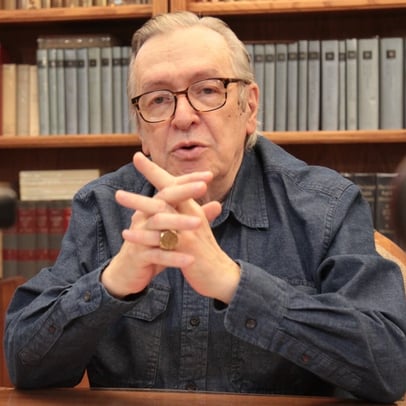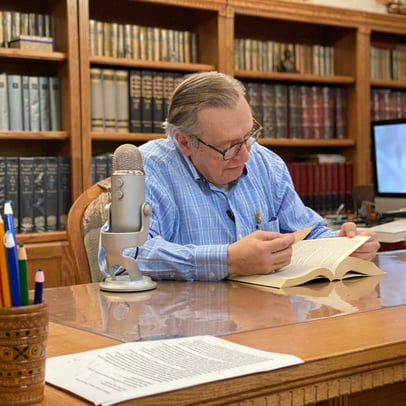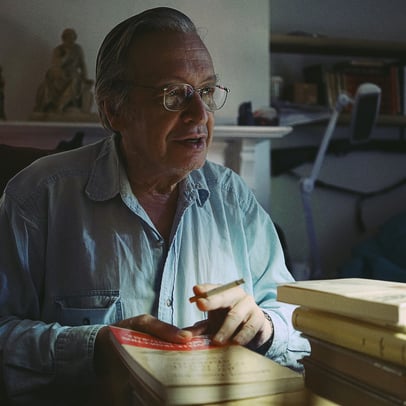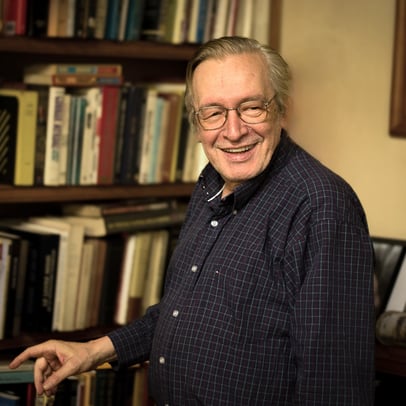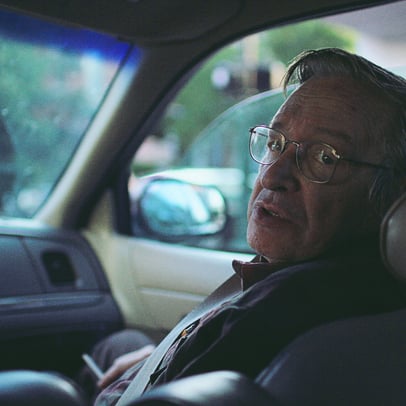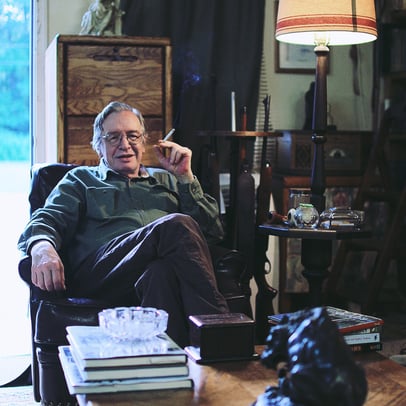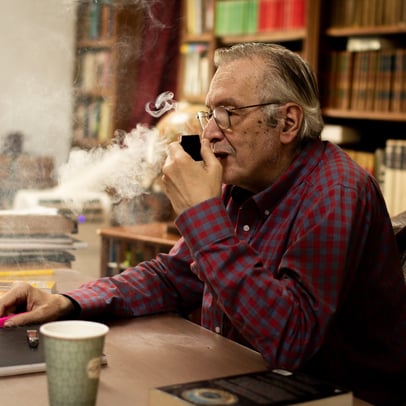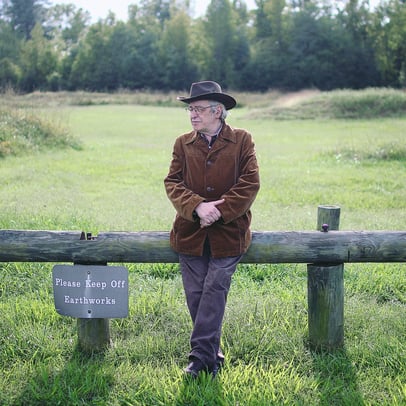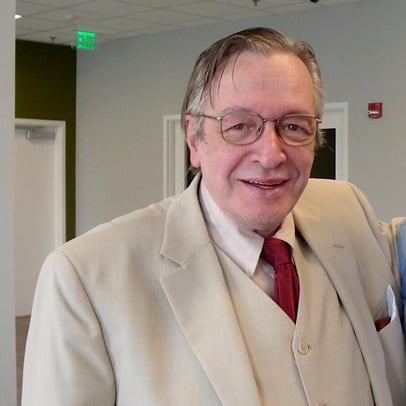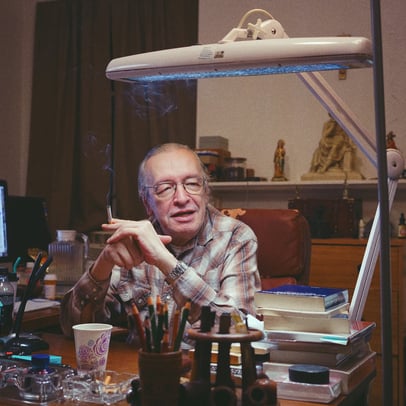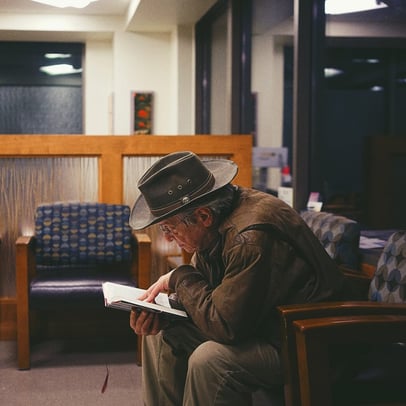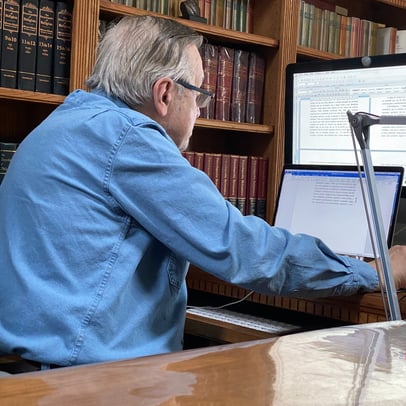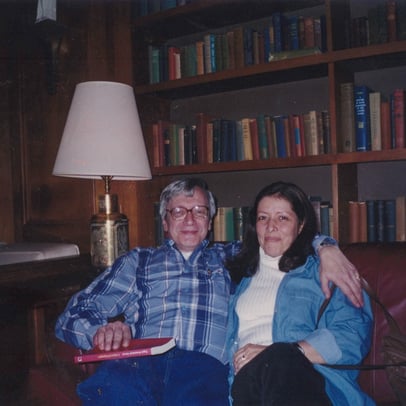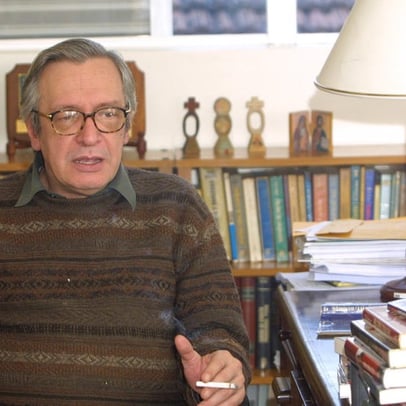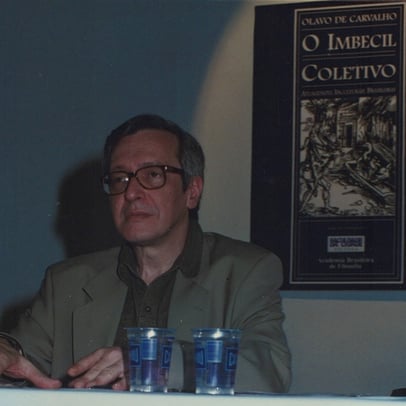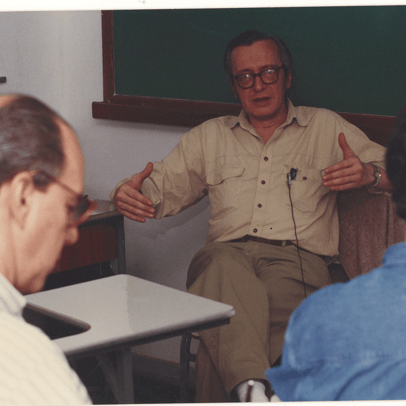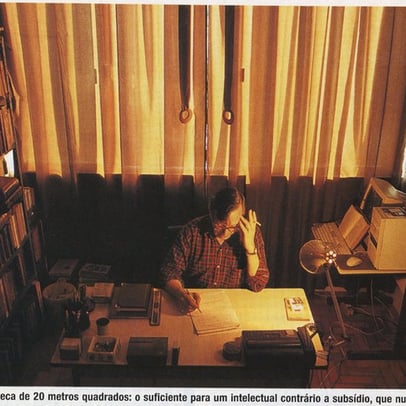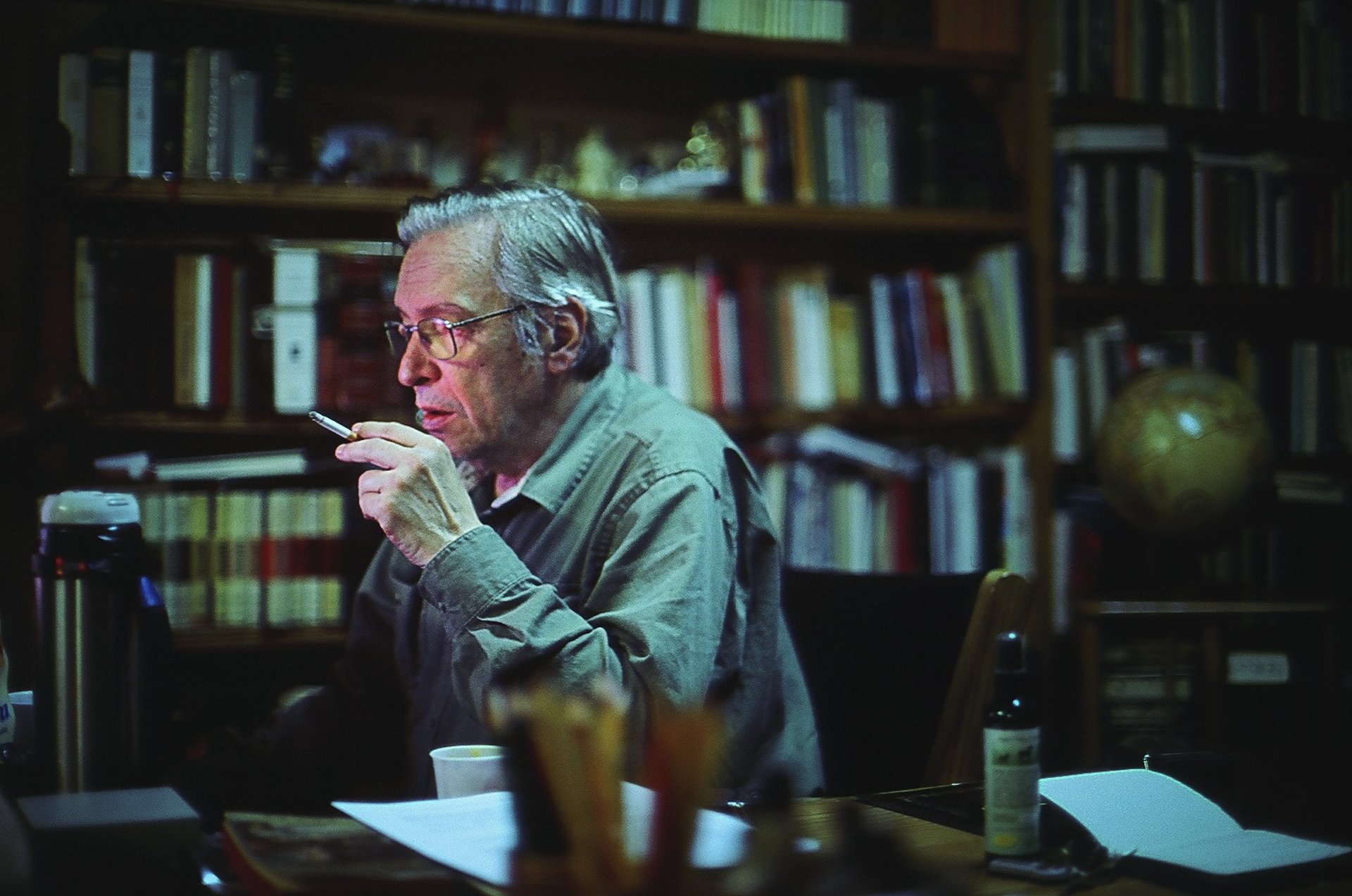
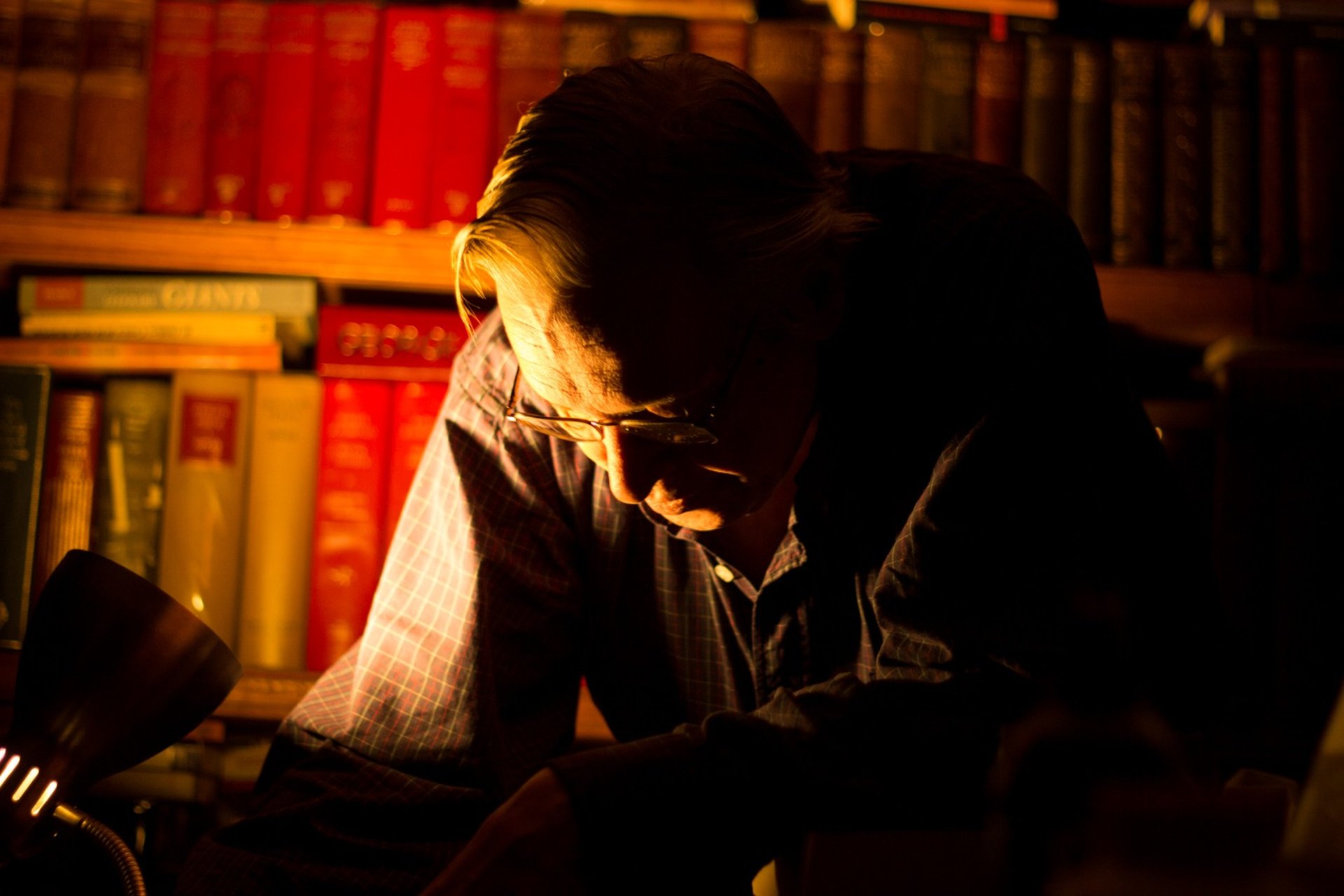
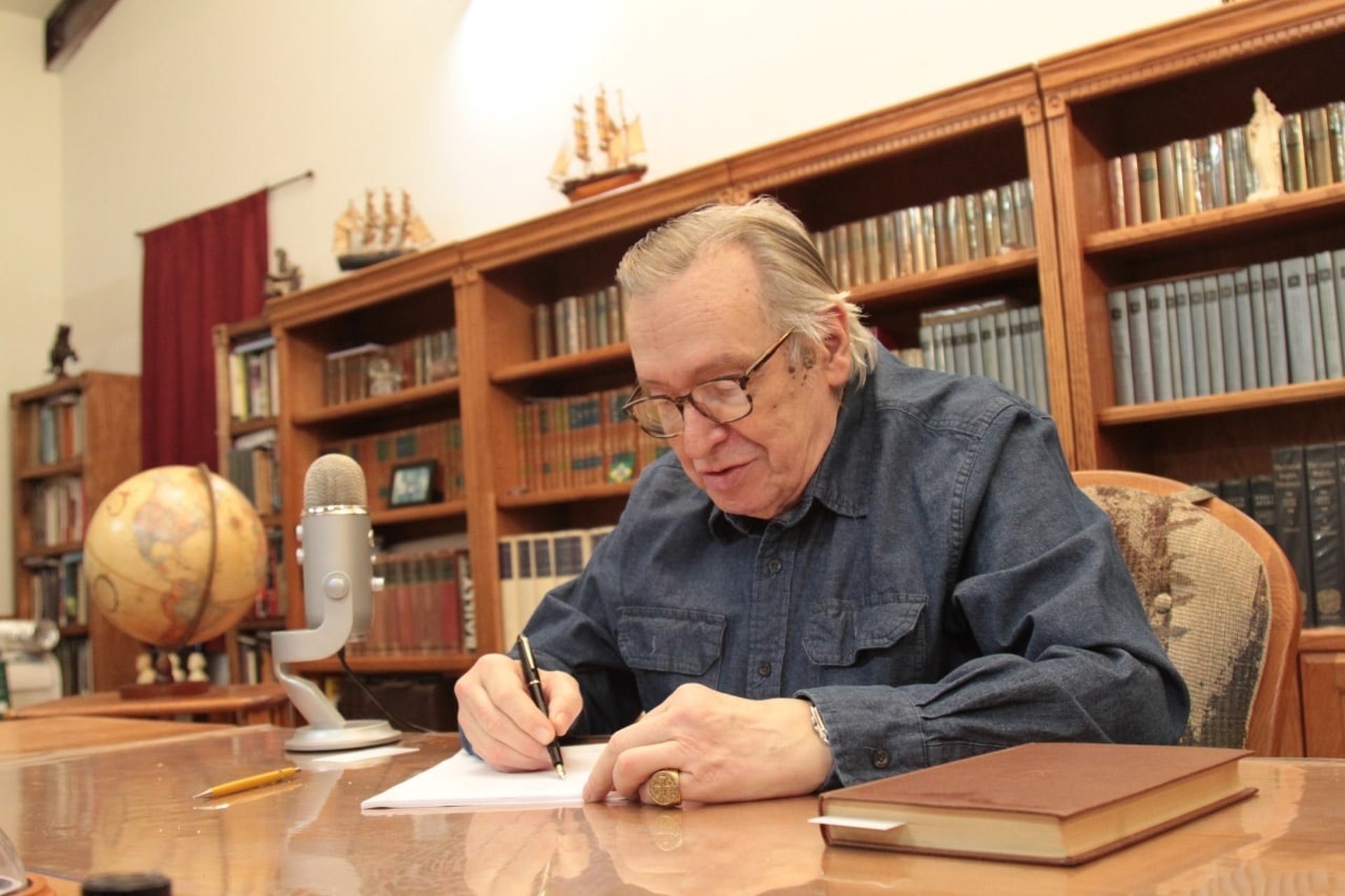
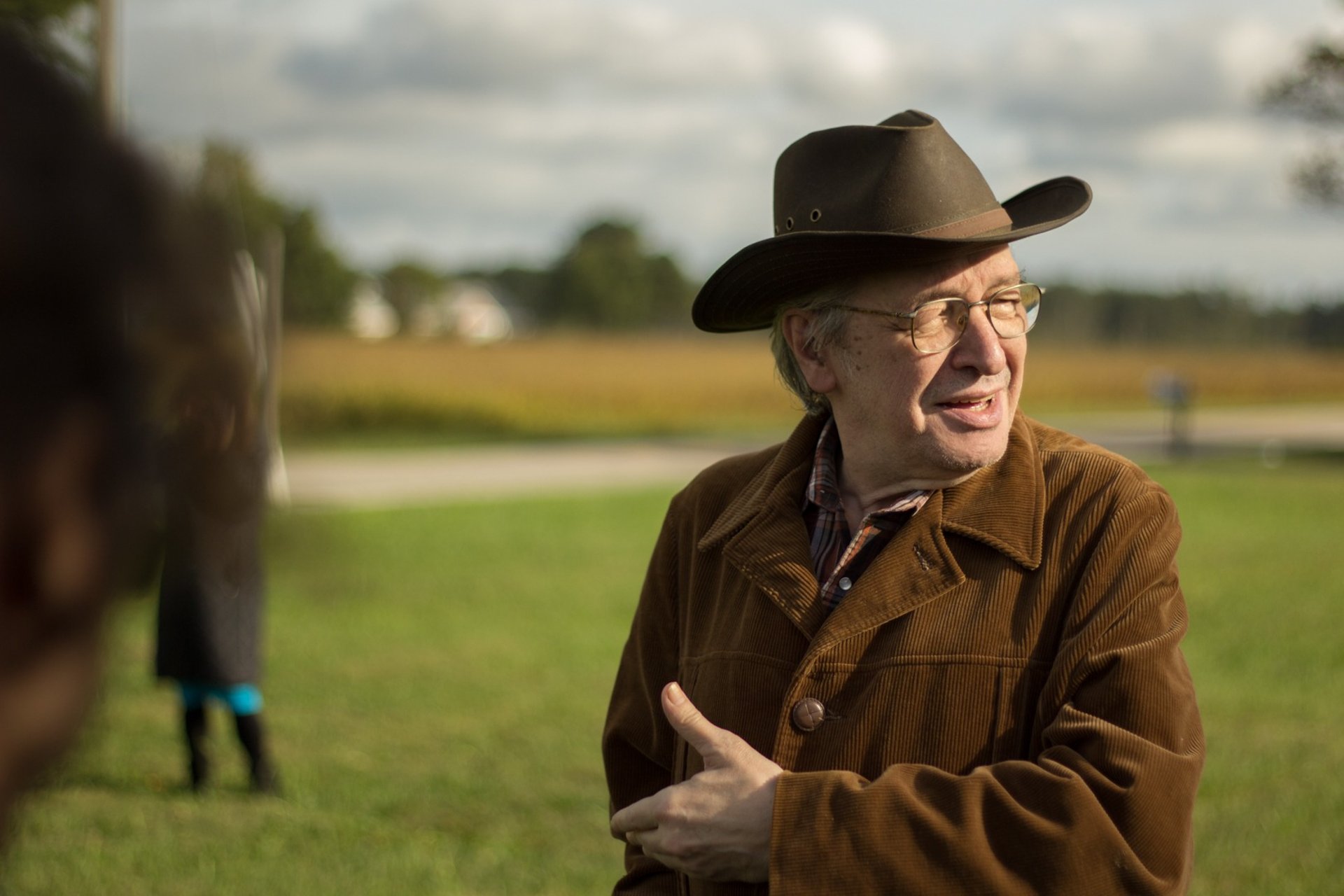
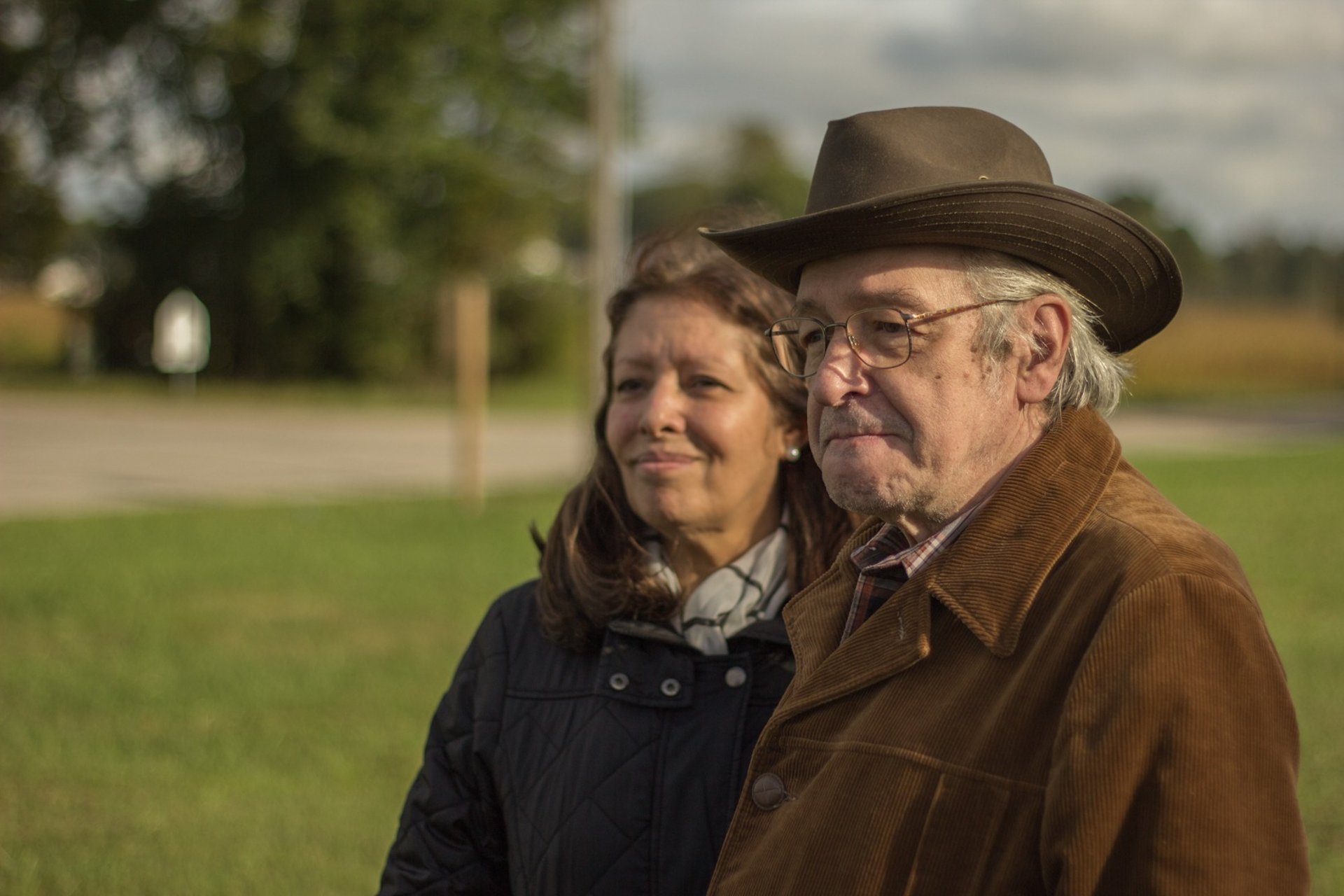

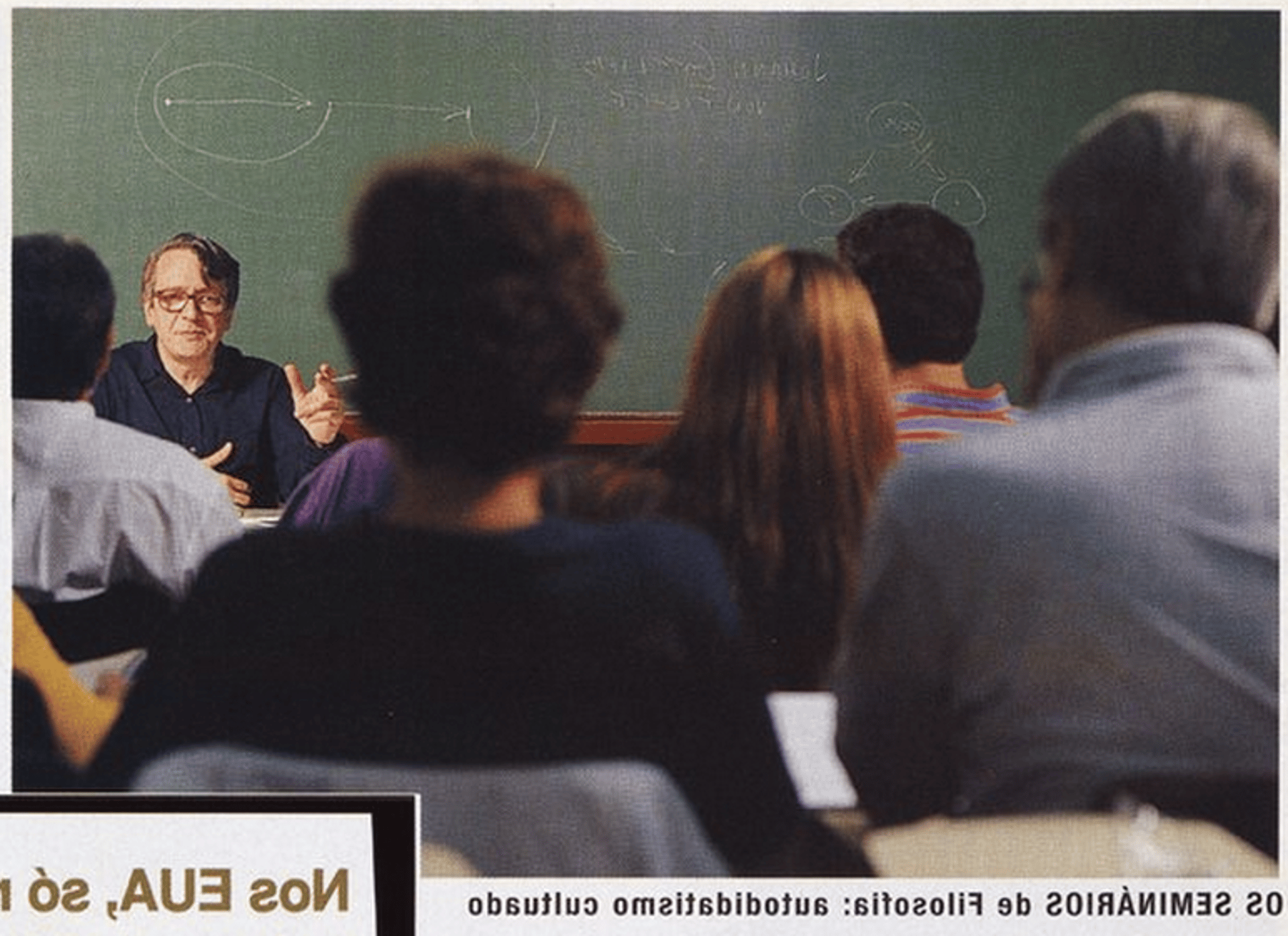
About the author
Olavo de Carvalho, a Brazilian philosopher, journalist, and best-selling author, was one of the most influential intellectual figures of his time. His works, teachings, and analysis of modern culture, leftist ideologies, and philosophical decadence shaped Brazil's intellectual landscape and earned him both widespread admiration and relentless opposition. Born on April 29, 1947, in Campinas, São Paulo, Carvalho's life was marked by a fearless pursuit of truth, intellectual independence, and an unwavering commitment to educating others in the philosophical tradition.
Early Life and Education
Carvalho's intellectual journey began early, fueled by a voracious appetite for knowledge and a deeply inquisitive mind. A self-taught philosopher, he immersed himself in diverse fields, including philosophy, religion, political science, and journalism. Though he never pursued a formal academic path in philosophy, his autodidactic rigor and engagement with classical and modern texts enabled him to construct a robust intellectual foundation that would later define his works.
Professional Career
Carvalho's career as a journalist began in the 1970s, and he quickly became known for his incisive critiques of cultural, political, and philosophical trends in Brazil. Writing columns for major Brazilian newspapers, including O Globo, Jornal do Brasil, and Folha de São Paulo, he challenged the prevailing intellectual dominance, often taking aim at leftist ideologies that dominated Brazil's academic and media establishments.
As an author, Carvalho published over forty books, many of which became best-sellers. His seminal work, O Imbecil Coletivo (The Collective Imbecile), published in 1996, was a scathing critique of Brazil's intellectual elite. The book exposed what Carvalho saw as the intellectual shallowness and ideological collectivism and dogmatism of the country's cultural establishment. The book cemented his reputation as a formidable intellectual force.
Philosophical Contributions
Carvalho's philosophical contributions were deeply rooted in classical traditions while addressing contemporary issues with sharp originality. He critiqued the intellectual and moral decline he perceived in modern philosophy, calling for a return to the foundational principles of Western thought. His work often focused on epistemology, metaphysics, political science, and the critique of ideologies.
In 2009, Carvalho changed philosophical education by launching his Online Philosophy Course. This initiative, delivered through live-streamed lectures, allowed him to philosophize in real time, engaging directly with students on complex topics. Over the course of 585 classes, he addressed questions on epistemology, metaphysics, and the philosophical method, reaching an audience of over 80,000 students, predominantly in Brazil but also in America and Europe. The course remains one of the most successful initiatives for independent online philosophical education.
Worldview and Intellectual Journey
Carvalho's intellectual journey was as dynamic as it was transformative. Early in life, he joined the Communist Party, seeking answers to social and political questions. However, he became disillusioned with its dogmas and sought meaning in alternative spiritual and intellectual traditions, including New Age and Eastern religions. Eventually, he returned to the roots of Western philosophy and Christianity, drawing inspiration from Socratic inquiry, Aristotelian metaphysics, and the Scholastic intellectual tradition.
This eclectic journey enriched his philosophical perspective, enabling him to critique modern ideologies from a unique vantage point. Carvalho described philosophy as “the unity of knowledge in the unity of consciousness, and vice versa,” a definition that encapsulates his approach to understanding reality. His work emphasized the primacy of truth, critical reasoning, and the need to question ideological narratives.
Influence and Legacy
Carvalho's impact on Brazilian intellectual life cannot be overstated. He is credited with breaking the intellectual monopoly of leftist ideologies that had dominated Brazil's cultural and academic institutions for decades. His writings and lectures sparked a resurgence of interest in conservative and classical liberal ideas, inspiring a new generation of thinkers and political leaders.
However, this influence came at a cost. Carvalho faced relentless criticism, censorship, and even personal attacks from his detractors, who accused him of promoting divisive ideas. Despite these challenges, he remained steadfast in his mission to expose intellectual fallacies and inspire independent thought.
Life Abroad
In 2005, Carvalho moved to Virginia, USA, seeking a quieter life away from the turmoil of Brazilian politics. There, he continued his intellectual work, teaching, writing, and engaging with students and followers from around the world. His home in Virginia became a hub for philosophical inquiry and dialogue, as he conducted his Online Philosophy Course and wrote extensively on topics ranging from metaphysics to current events.
Philosophical Approach
Carvalho's philosophy was deeply influenced by the Socratic tradition, emphasizing inquiry, debate, and the pursuit of truth over ideological prescriptions. He rejected utopian visions of a “better world,” focusing instead on understanding the world as it is and tracing its cultural and philosophical developments back to their origins. His ability to bring the voices of Socrates, Plato, and Aristotle into contemporary discussions set him apart as a thinker deeply attuned to both the past and the present.
Carvalho also critiqued the cultural and intellectual decay of modern Western society, which he saw as succumbing to triviality and self-imposed decadence. His writings often served as a counterpoint to this decline, offering a return to timeless principles and a reaffirmation of intellectual integrity.
Personal Mission
Carvalho often described his life’s work as a mission to educate and inspire others in the pursuit of truth and philosophy. He believed that philosophy was not merely an academic discipline but a way of life—a means of achieving clarity, coherence, and unity in thought and action. Through his books, lectures, and personal interactions, he sought to awaken his audience to the importance of critical thinking, intellectual courage, and moral responsibility.
Passing and Legacy
Olavo de Carvalho passed away on January 24, 2022, in Virginia. His death marked the end of a remarkable life dedicated to intellectual exploration and the pursuit of truth. Yet his influence endures, as his works continue to be studied and his teachings inspire new generations of thinkers.
Carvalho’s legacy is one of intellectual courage, rigorous inquiry, and a steadfast commitment to truth. He leaves behind a body of work that challenges conventional wisdom, revives classical traditions, and invites readers to engage deeply with the philosophical questions that shape our world. His impact on Brazilian and global intellectual culture ensures that his contributions will be remembered for years to come.
Bio


Genuine heroes are made from within, in the soul's struggle for the truth of existence. Before shining in spectacular actions, they must overcome the inner lie and pay, with extreme moral solitude, the price of sincerity."
Olavo de Carvalho
"
Gallery
Credits to the Carvalho's family archive as well as to the photographers Josias Teofilo, Matheus Bazzo, Mauro Ventura, and Thiago da Costa.
